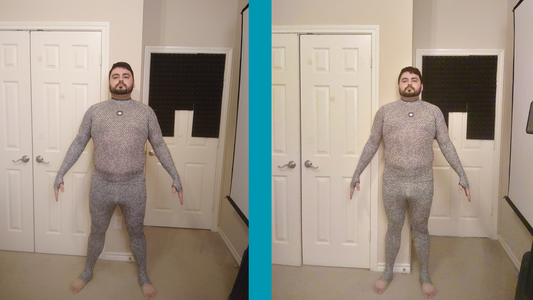

How Many Calories Do You Need to Burn Each Day for Effective Weight Loss?
Knowing how to approach calories is essential when thinking about your weight loss goals. The science behind calories helps us understand how to make weight loss effective and work for us. Losing weight isn’t about spending as long as you can on the elliptical at the gym; it’s a balance of a healthy diet and increased exercises that optimizes your fat-burning potential.
What is a calorie?
A calorie is a measure of energy. Per the technical definition, a calorie is the amount of energy required to raise the temperature of 1 gram of water by 1 degree Celsius.
However, the calories we see on food packaging aren’t necessarily the same as the calories you might remember from science class. That’s because calories in nutrition are actually 1 kilocalorie (1000 calories). Foods and drinks have so much energy in them that we have to reframe how we think about calories.
Most foods we eat and beverages we drink contain calories — except for the zero-calorie alternatives — which means that we’re adding energy to our stores with every meal and snack.
For the purposes of this article, when we refer to a “calorie,” we mean 1 kilocalorie (kcal).
The Body Requires Calories to Function
Sometimes it seems like calories have a bad reputation in conversations about dieting and weight loss, but the body does require calories to function. Without energy, we will feel sluggish and our body cannot do what it needs to do to keep us alive.
Everyone’s daily calorie needs are unique to them, but most adults require somewhere between 1,600 - 3,000 calories. Women typically require fewer calories than men. People who exercise often also require more calories than those who live a more sedentary lifestyle.
To determine what you should eat each day, look at calories in combination with macronutrients. Your diet should be made up of carbohydrates, protein, and healthy fats to satiate your hunger and nourish your body.
How Many Calories to Burn to Lose Weight
If you are starting a weight loss journey, paying attention to calories is one of the best things to do to support yourself. Calories are key to weight loss.
Before you get started, you need to determine how many calories you use on a day-to-day basis. If you are unsure, a calorie calculator can help you estimate the number of calories you expend daily.
The key to calories and weight loss is the concept “calories in, calories out.” In essence, to lose weight, you want to maintain a calorie deficit, which means eating fewer calories than you burn. On the flip side, eating more calories than you burn means you lose weight, and eating the same amount as you burn has you maintaining weight over time.
This is one of the reasons why people say weight loss starts in the kitchen. To lose one pound of fat every week, you need to have a 3,500 caloric deficit, which is a 500 calorie deficit each day. Most of your weight loss will come from paying attention to the food you are eating and what you’re drinking, but exercise can boost your results.
If you are following a “calories in, calories out” framework for your weight loss, do make sure you are still eating enough food. While you want to stay in a deficit, your body still needs calories to operate! Additionally, looking at your macros can help you ensure that you are giving your body the fuel it needs to continue.
How to Effectively Burn Calories
Exercising and improving your overall fitness level can benefit your weight loss goals. When you exercise, you burn calories, which can help you achieve your daily deficit.
Prioritize high-intensity exercises if you want to maximize your calorie-burning potential. This could look like HIIT training, spin cycle classes, or running.
If you are just starting with fitness, then low-impact exercise like walking is perfect for beginners. Since working out will only boost your weight loss, doing anything is better than nothing.
One thing to keep in mind when working out is that each caloric burn rate is individual. Heavier people will burn more calories per hour than someone lighter. According to the University of Kentucky, someone 205 pounds can burn up to 745 calories running, whereas someone weighing 130 pounds might only burn 472 calories.
Choosing activities you enjoy will make your weight loss journey better. If you’re looking forward to your daily calorie-burn, then you might find even more joy in your weight loss journey.
ZOZOFIT Can Help You Achieve Your Weight Loss Goals
As you're counting calories and staying focused on losing weight, the ZOZOFIT app is a great tool to have in your health and wellness toolbox, as it provides you with laser-accurate body measurements when you scan with your smartphone, allowing you to track changes to your body composition over time.

![zf-w-[168px] zf-h-[40px]](http://zozofit.com/cdn/shop/t/15/assets/logo-desktop.png?v=117713855448369080381753069598)


